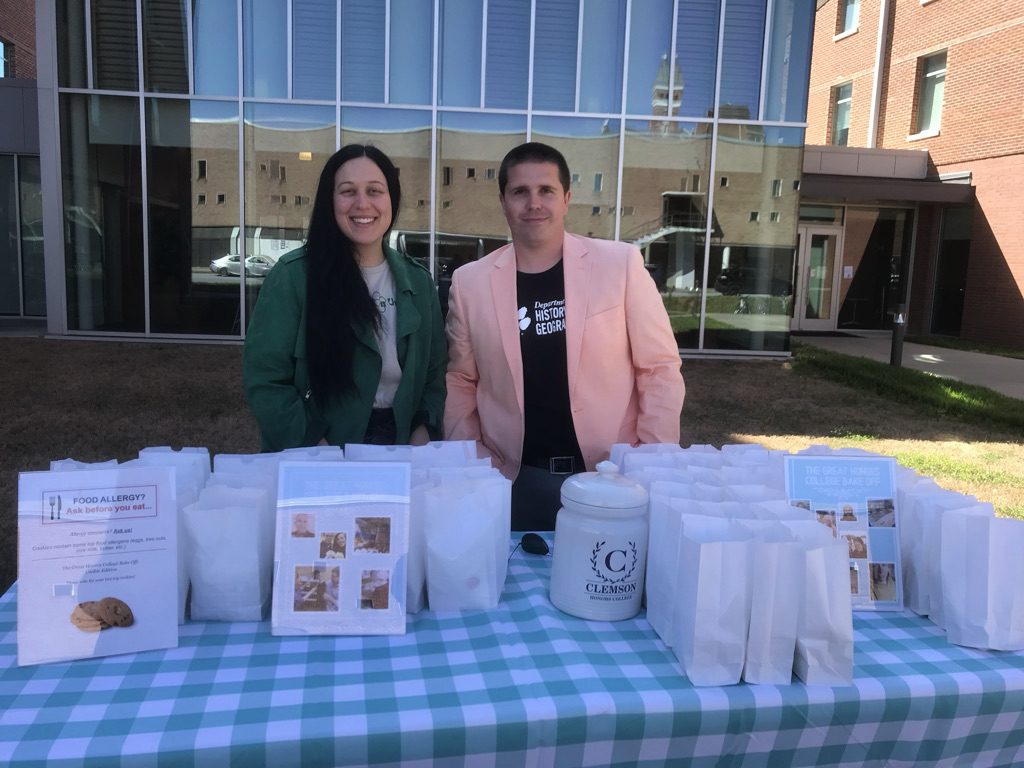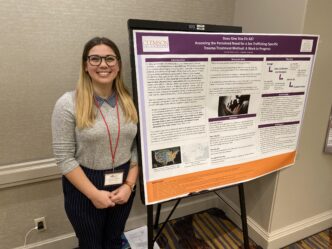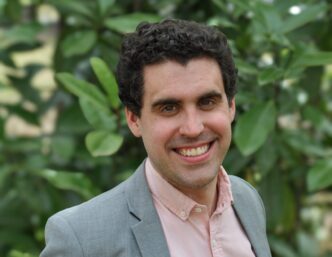Briana Pocratsky is the 2025 Douglas W. Bradbury Award recipient for outstanding contributions to the Clemson University Honors College.
Although she’s taught at Clemson for only the past five years, Pocratsky, a lecturer in the Department of Sociology, Anthropology and Criminal Justice, has built an impressive list of Honors contributions.
Her seminar classes are among the Honors College’s most popular course offerings. She’s also led and mentored Honors students as a Senior Fellow in the college’s Dixon Fellows Program, which pairs small groups of students with Clemson faculty to discuss a topic for a semester or year.
In addition to her teaching, Pocratsky has served as the faculty lead for the Honors College’s first-year seminar program and as her department’s Honors liaison. She also champions student-led research, working with Honors students on Creative Inquiry projects — one of which has resulted in a research article being prepared by the students for peer review.
Sarah Winslow, dean of the Clemson University Honors College, said Pocratsky has transformed the Honors student experience inside and outside the classroom.
“Dr. Pocratsky’s teaching is rooted in empathy, critical thinking, and real-world application,” said Winslow. “This award recognizes her tireless dedication, unmatched innovation and deep care for every student she meets.”
Many students would argue, however, that her most significant impact so far has been through her role as Co-Faculty-in-Residence with Joshua Catalano, an assistant professor of history, for the Honors Residential College (HRC) — a position they have held since their first days on the job with Clemson.
Pocratsky and Catalano introduced several popular events, such as away football game watch parties and Historical Eats, where students learn about and sample popular recipes from the past.
Their most popular event by far, however, is the annual Great Honors College Bake-off, where Honors students, faculty and staff compete for best-baked-good bragging rights.
D.J. Moore, the community director for the HRC, said that Pocratsky and Catalano, who are moving on from their faculty-in-residence roles this spring, have made a lasting impact on the Honors community.
“They are outstanding mentors and community builders who foster a welcoming and engaging environment for our residents,” said Moore. “Their passion for student development, community engagement and leadership is inspiring.”



Student-first focus
A first-generation college graduate from rural Pennsylvania, Pocratsky said she understands the challenges of navigating “invisible hurdles” for students finding their way through college and higher education.
As a result, Pocratsky has become a valued mentor to many Honors students. She is often asked to write letters of recommendation (usually for students in majors other than her field of study) and help them prepare for applying and interviewing for graduate school. She also advises alumni over coffee as they consider their next steps.
Grace Drolet, a psychology major who took several of Pocratsky’s classes, participated in her Dixon Fellows group and worked as a residential community mentor in the HRC, said Pocratsky’s support was instrumental to her undergraduate journey and future plans.
“Dr. Pocratsky is always willing to answer my questions, share her insight as someone who works in academia, give valuable advice and offer encouragement when my imposter syndrome kicks in,” said Drolet. “She has a unique perspective of society and the value of education, inspiring many first-gen college students – myself included.”
Pocratsky’s latest project is extending that support into the community, working with a group of students on an Honors creative inquiry project with Gateway in Greenville, a holistic, community-based mental health program that uses a clubhouse model to serve members living with serious mental illnesses.
Still in early development, the project will help Honors students, particularly those looking to work in the medical field or in community leadership roles, explore community-engaged approaches to mental wellness.
Pocratsky said there are few things more rewarding than watching Honors students grow into engaged leaders.
“Working with the Honors College just energizes me, honestly. The more I do, the more I want to do,” said Pocratsky. “Seeing students succeed is so fulfilling that I just want to keep contributing to the Honors college as much as I can.”







